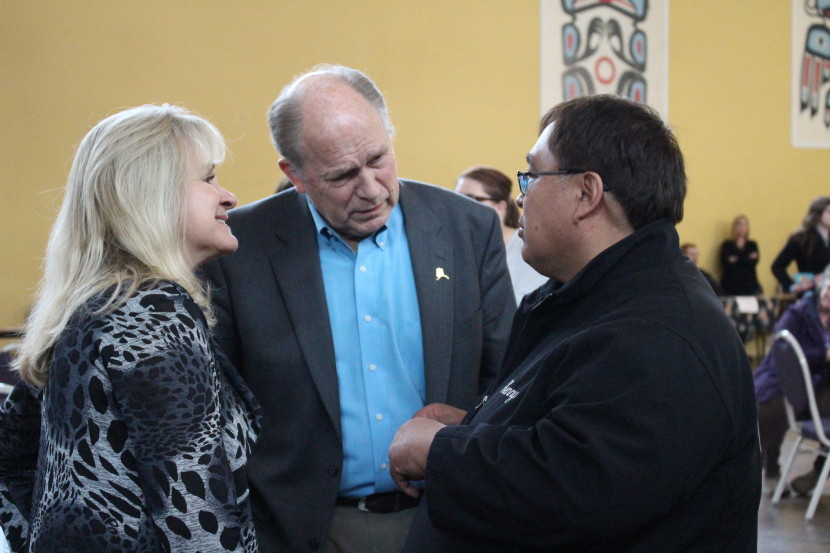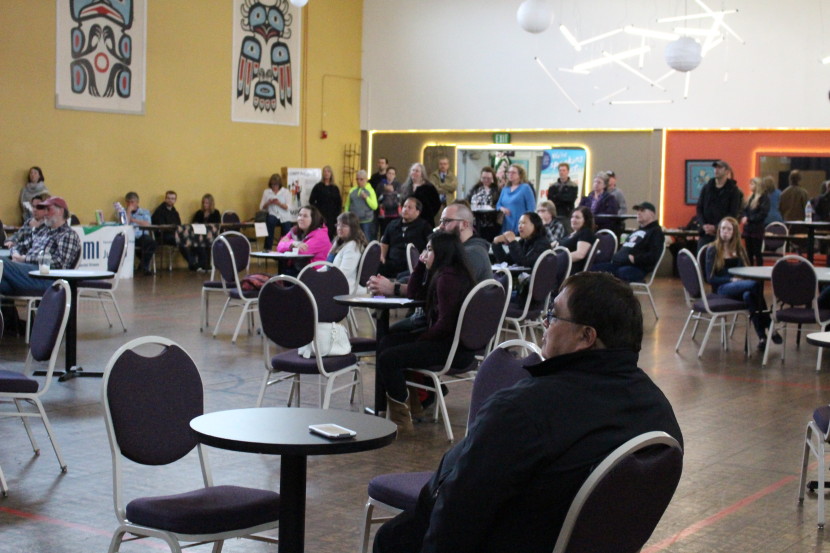The Juneau Police Department recently held an event to bring people and service providers together called Hope Not Heroin. Alaska lawmakers were there, as well as Gov. Bill Walker. And for some in the crowd, the event signified how communities are changing the conversation when it comes to talking about addiction.

“Giving Narcan, we want to make sure that they are actually overdosing on an opiate,” he told the crowd.
It’s an emergency drug that can save a person dying of an overdose. And it won’t be just emergency responders administering it anymore. Since the legislature passed Senate Bill 23, some Alaska pharmacies could start carrying it as early as the summer. Family members or friends could have access to the drug.
That’s one of the reasons why 19 year-old Nichelle Williams said she wanted to be here: Naloxone saved her life.
“I just came out of treatment from a heroin overdose. And so I came here to help support the bill and everything that’s going on with the heroin stuff,” Williams said.
Williams is exactly who this event is for. Around the room, there are about 31 booths with information about addiction, recovery, even proper syringe disposal. But for such a heavy topic, the atmosphere is light. There’s folky music and a food truck selling pizza.
Rick Hanby is sitting around a table with his wife and kids. He said they decided to come because they’ve known someone who’s struggled with opiate use.
“I think sooner or later, or one way or another, it affects somebody, everybody here. It affects our community. So this is a really good start to get everyone to start thinking and start talking about it,” Hanby said.
Lt. Kris Sell said it’s not common for police departments to organize an event like this. But over the past six months, they’ve tried to use other tactics to reduce heroin use. For decades, she said police across the country focused on the narcotics supply in the War on Drugs.
“And so now we’re acknowledging that it’s the demand that fuels this problem,” Sell said.
Seven people died in heroin-related deaths in 2015. This year, there’s been one. And Sell thinks, overall, 200 people in Juneau use heroin on a daily basis.
“Doubling to about 400 during the summer when we get in highly paid seasonal workers, like in the fishing industry. Some of the tourist industry,” Sell said.

So, for those struggling with addiction who want to get help, she said it can be difficult to navigate what treatment options are available. Unfortunately, in Juneau, the answer is not a lot.
Mitzi Privett, the interim director at Rainforest Recovery Center, said typically, they have some beds available for in-patient detox.
“Recently, we’ve been very full,” Privett said. “And so if someone came in that needed help right away, it would be much harder to serve them. If we had more options, we could say, ‘We’re not available to help but let us refer you to somebody who is.’”
Nichelle Williams was one of the people who was able to get in after her heroin overdose. But she thinks Juneau should have more options. Recently, her friend overdosed and died before she could get help.
“And it was really hard, and she didn’t have the option of treatment because when she went into the hospital, they were like, ‘We can’t help you,’” Williams said. “That’s how most people die in Juneau, if they want help and they try to get help, the hospital can’t help them detox.”
With her recovery, Williams said seeing support — like Saturday’s event — has been huge. But there’s still room for growth when it comes to educating people about addiction.
“When people call me a junkie or something, it makes me feel degraded,” Williams said. “I’m a normal human being. I just have an issue. Just the labeling, it really gets people down. It really does.”
While Juneau waits for more addiction treatment, Williams said there’s something else the community can do to help: be positive and keep the conversation going.




